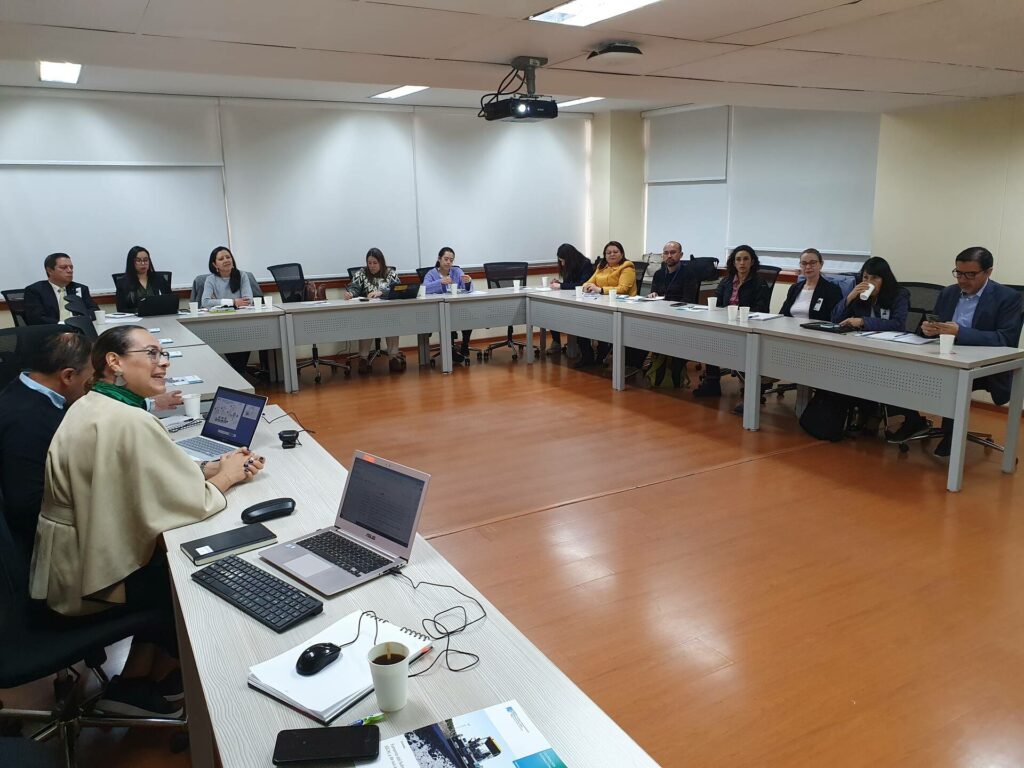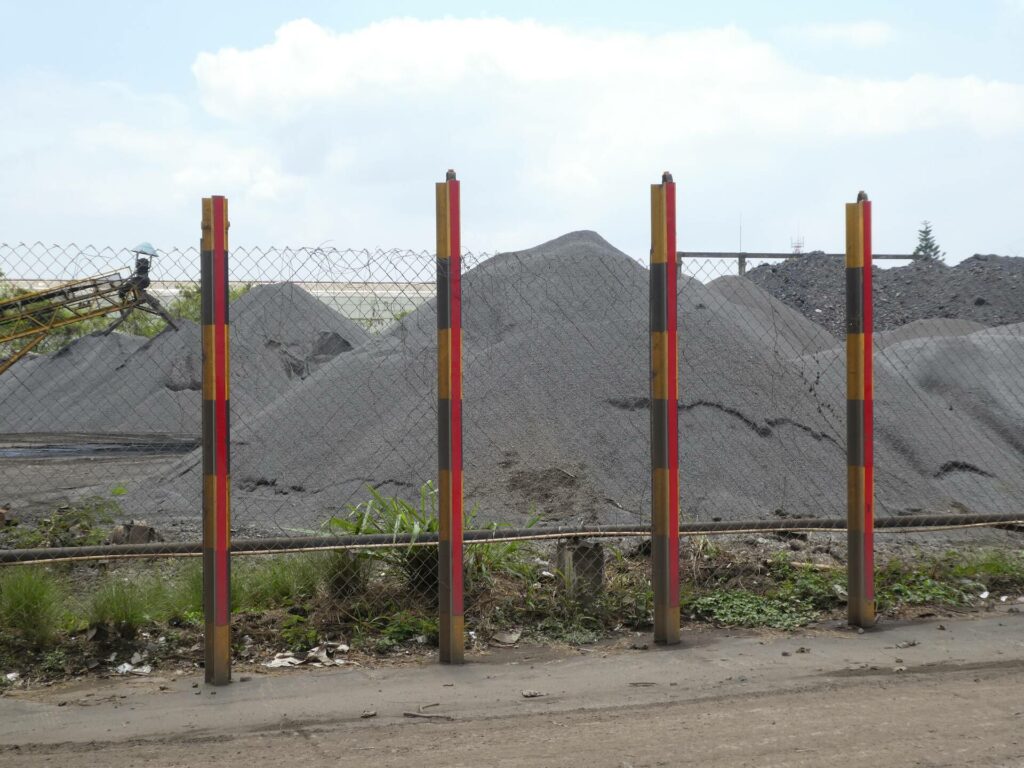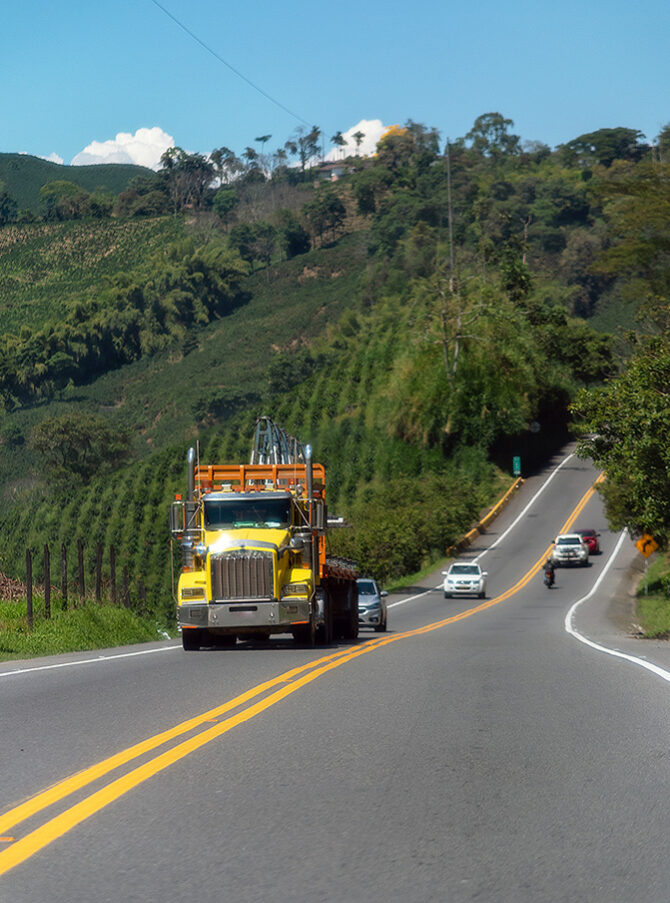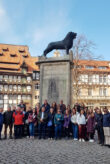A new technical standard is being developed in Colombia to promote the transformation of black slag into a secondary raw material that can be used for road construction. On 8 March 2023, in a hybrid meeting, representatives of the Industry Management Directorate and Colombian Steel Producers Committee of the National Business Association of Colombia (ANDI), the national metrology institute of Colombia (INM), the Colombian Institute of Technical Standards and Certification (ICONTEC), the national accreditation body (ONAC) and the PTB team met to lay the foundation for a Technical Committee.

Black slag is “waste” from the electric arc furnaces used in steel production. To date, black slag has accumulated in the yards of Colombian steel plants, taking up more and more space. Although it is classified as non-hazardous waste, it pollutes the environment, and the disposal or storage poses an additional cost to the companies. In view of the scarcity of natural aggregates available to the construction industry, and considering black slag’s physicochemical-mechanical characteristics, replacing natural sands with black slag – which is a perfect fit for various construction applications —is an excellent strategy. It also lessens the environmental destruction caused by quarrying and saves energy by reducing excavation and transportation, thus contributing to the reduction of greenhouse gas emissions.

Five companies produce steel using this method in Colombia: Acerías de Paz del Río, Gerdau Diaco, SIDOC, Grupo Reyna and Ternium. All five are members of the Colombian Steel Producers Committee of the National Business Association of Colombia (ANDI), one of the partners in the Colombian-German ARTICAL II project. At the request of the Committee, black slag was chosen as the focus of quality services development with the aim of transforming it into a secondary raw material for road construction. Although the steel companies and other stakeholders have experience with using black slag for secondary roads and similar purposes, general use has not been possible due to the lack of technical standards, regulations and the respective testing methods. To remedy this situation, PTB’s International Cooperation Group is contributing to overcoming these barriers through the project “ARTICAL II”. The project initially focused on black slag recycling and then — based on the experience gained — moved on to other links in the value chain. Various measurements such as the determination of the chemical composition, e.g., metal content, and grain size are necessary for the repurposing of black slag.

Based on a technical datasheet prepared by the project team with stakeholders and experts, some workshops — in which the Ministry of Environment and Sustainable Development and the Institute of Hydrology, Meteorology and Environmental Studies (IDEAM) also participated — and a study which received funding from ICONTEC, the decision was made to develop a Colombian Technical Standard (NTC) for the product “grey steel slag aggregates” (formerly black slag) for road construction. The development of a technical standard in this context is necessary because there are still no similar international, national or private standards that can be adopted.
The Technical Committee is composed of Technical Group 1, Standardization, and Technical Group 2, which is dedicated to metrology and accreditation issues. This ensures from the outset that the issues of traceable, reliable and comparable measurements and testing methods are considered in a timely manner. The leader of the Technical Committee, Flor Marina Eusse (Gerdau Diaco), is supported by several project consultants. In this first phase, experts from the steel industry, INM, ICONTEC and ONAC will participate in this committee. As work begins on developing the standard, all interested parties will be invited to participate in the creation of this innovative technical standard.
Updates on the progress of this project will be available on our blog.
Title image © istock








